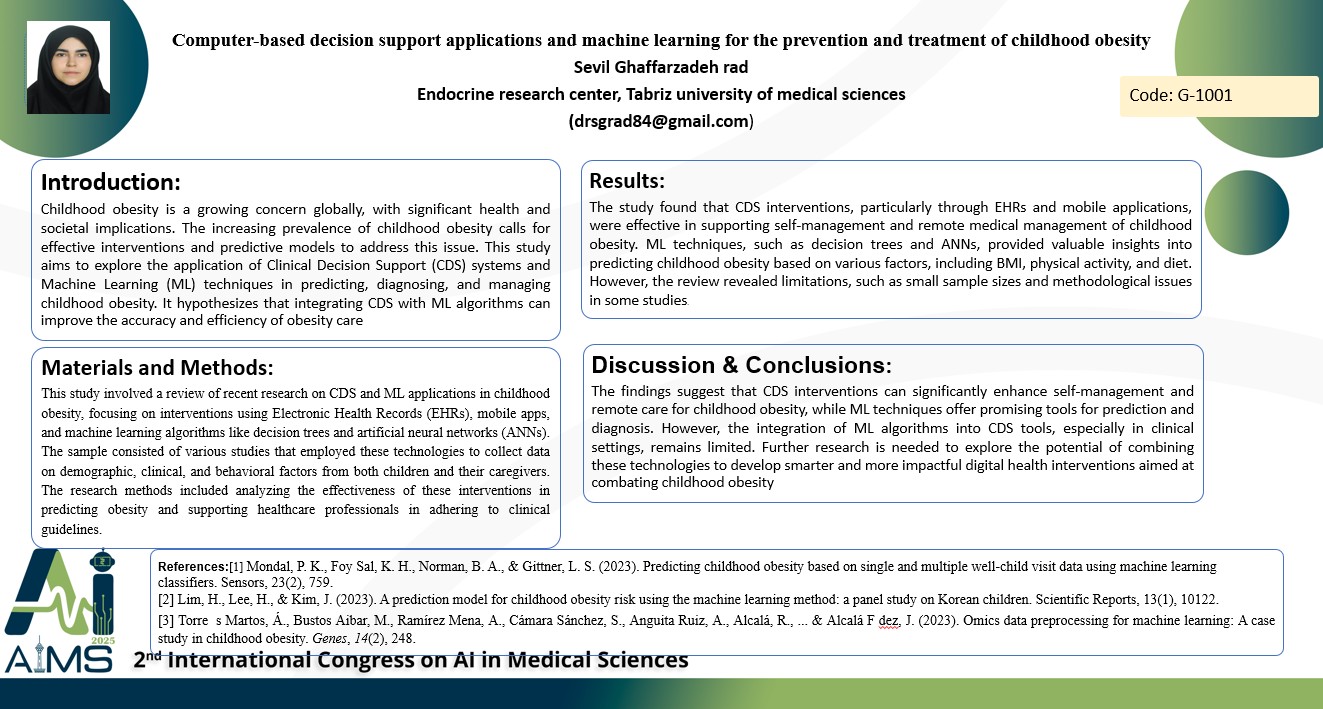Computer-based decision support applications and machine learning for the prevention and treatment of childhood obesity
Code: G-1204
Authors: Sevil Ghaffarzadeh Rad * ℗
Schedule: Not Scheduled!
Tag: Intelligent Virtual Assistant
Download: Download Poster
Abstract:
Abstract
Background and Aims: Childhood obesity is a growing concern globally, with significant health and societal implications. The increasing prevalence of childhood obesity calls for effective interventions and predictive models to address this issue. This study aims to explore the application of Clinical Decision Support (CDS) systems and Machine Learning (ML) techniques in predicting, diagnosing, and managing childhood obesity. It hypothesizes that integrating CDS with ML algorithms can improve the accuracy and efficiency of obesity care. Method: This study involved a review of recent research on CDS and ML applications in childhood obesity, focusing on interventions using Electronic Health Records (EHRs), mobile apps, and machine learning algorithms like decision trees and artificial neural networks (ANNs). The sample consisted of various studies that employed these technologies to collect data on demographic, clinical, and behavioral factors from both children and their caregivers. The research methods included analyzing the effectiveness of these interventions in predicting obesity and supporting healthcare professionals in adhering to clinical guidelines. Results: The study found that CDS interventions, particularly through EHRs and mobile applications, were effective in supporting self-management and remote medical management of childhood obesity. ML techniques, such as decision trees and ANNs, provided valuable insights into predicting childhood obesity based on various factors, including BMI, physical activity, and diet. However, the review revealed limitations, such as small sample sizes and methodological issues in some studies. Conclusion: The findings suggest that CDS interventions can significantly enhance self-management and remote care for childhood obesity, while ML techniques offer promising tools for prediction and diagnosis. However, the integration of ML algorithms into CDS tools, especially in clinical settings, remains limited. Further research is needed to explore the potential of combining these technologies to develop smarter and more impactful digital health interventions aimed at combating childhood obesity.
Keywords
Clinical Decision Support, Machine Learning, Digital
